Your Eye Makeup Could Be To Blame for Dry, Itchy Eyes—This Ophthalmologist-Designed Beauty Line Is Here To Help
As common as dry, itchy eyes are, they're not normal. While they can be caused by things like allergies and contacts, eye makeup is another major culprit. Shadows, liners, and mascaras are often formulated with ingredients that can slowly damage and even kill the glands that keep your eyes moist and healthy. So Diane Hilal-Campo, MD, a board-certified ophthalmologist in New Jersey, decided to launch her own brand—Twenty/Twenty Beauty—to serve as a destination for eye-friendly makeup.
"I've been in practice for 25 years in New Jersey and after years and years of seeing patients, there's been a dramatic rise in the number of dry-eye patients," says Dr. Hilal-Campo. "The number tripled between 2005 and 2012, and continues to rise dramatically every year. And at least two-thirds of them are women. We talked about this also at our conventions, and we believe that the toxins in eye makeup have been contributing to dry eye and causing dry eye."
- Diane Hilal-Campo, MD, board-certified ophthalmologist and founder of twenty/twenty beauty
Dry eye is more than just a minor irritation. Without adequate moisture, your eyes are more susceptible to infection and damage that can lead to changes in vision. If you regularly wear makeup, it can be difficult to connect the dots between the products you're using and the symptoms you're experiencing, especially if they're not really interfering with your quality of life. But Dr. Hilal-Campo says it's all too common.
"There are three tear layers. There's the outer oil layer that's made by meibomian glands. There's an aqueous layer that's made by the lacrimal glands. And then the goblet cells, which are the mucus layer. All these structures make the tears to hydrate your eyes," she says. "You're only born with a certain number of them, and they're very delicate." Blocking the glands with eyeliner on the water line or even just exposing them to the ingredients in eye makeup can also harm them. "Once these glands are dead, they don't regenerate."
{{post.sponsorText}}
If you have allergies or wear contacts, you're more likely to feel dry eye caused by cosmetics. But anyone can experience these irritations if they're using cosmetics that contain known ocular irritants. One example is benzalkonium chloride, a preservative used in cosmetics as well as many eye drops. A 2022 review article compiled many studies that proved that this common preservative is toxic to the ocular surface.
"These toxins can be damaging to the structures of the ocular surface—like the epithelial cells of the cornea, the goblet cells, and the meibomian glands—and they can contribute to a dry eye. As well as being toxins, they cause inflammation," says Dr. Hilal-Campo. "Inflammation also interrupts the homeostasis of the eye and pushes people into dry eye. The challenge is to, number one, make products that are less damaging to the eyes. Number two, use ingredients that are not toxic to any of the ocular structures."
Creating eye-friendly beauty products with Twenty/Twenty Beauty
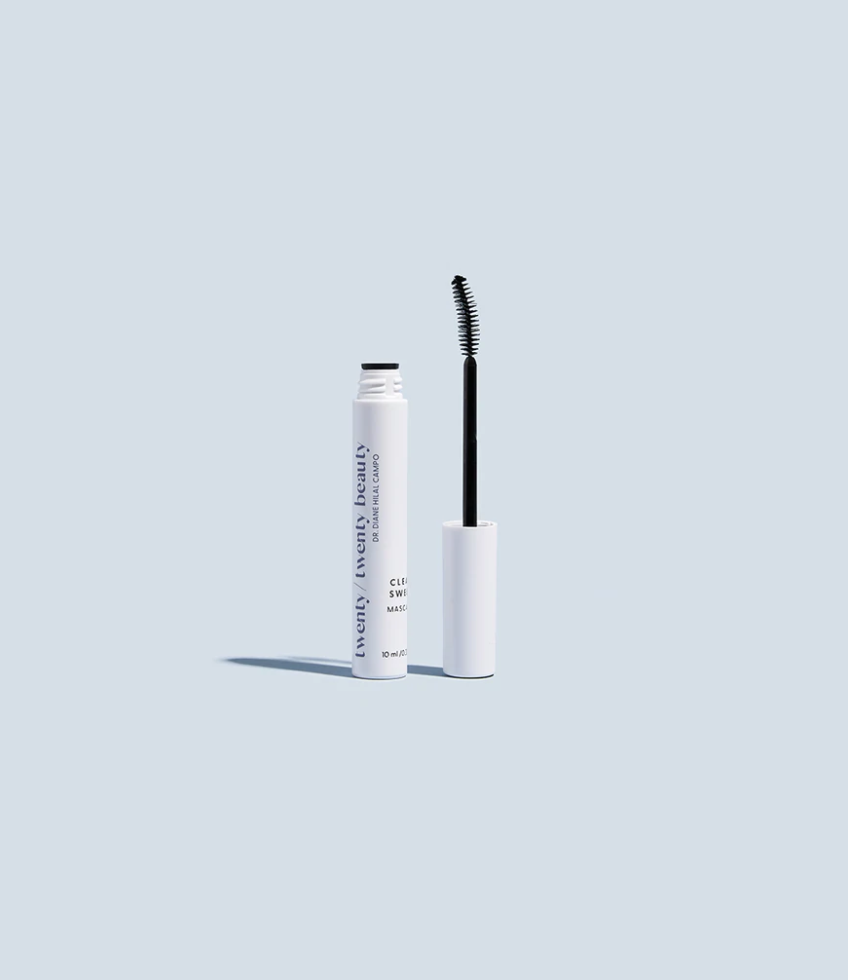
Two common irritants found in mascara are carnauba wax and beeswax. “Women who have pollen allergies will have a very bad reaction to beeswax, and a lot of mascaras use beeswax, so at the end of the day, their eyes will be very irritated,” says Dr. Hilal-Campo. “Less well-known is a carnauba wax allergy.” Twenty/Twenty’s mascara employs synthetic beeswax as its conditioning agent to help you avoid an allergic reaction.
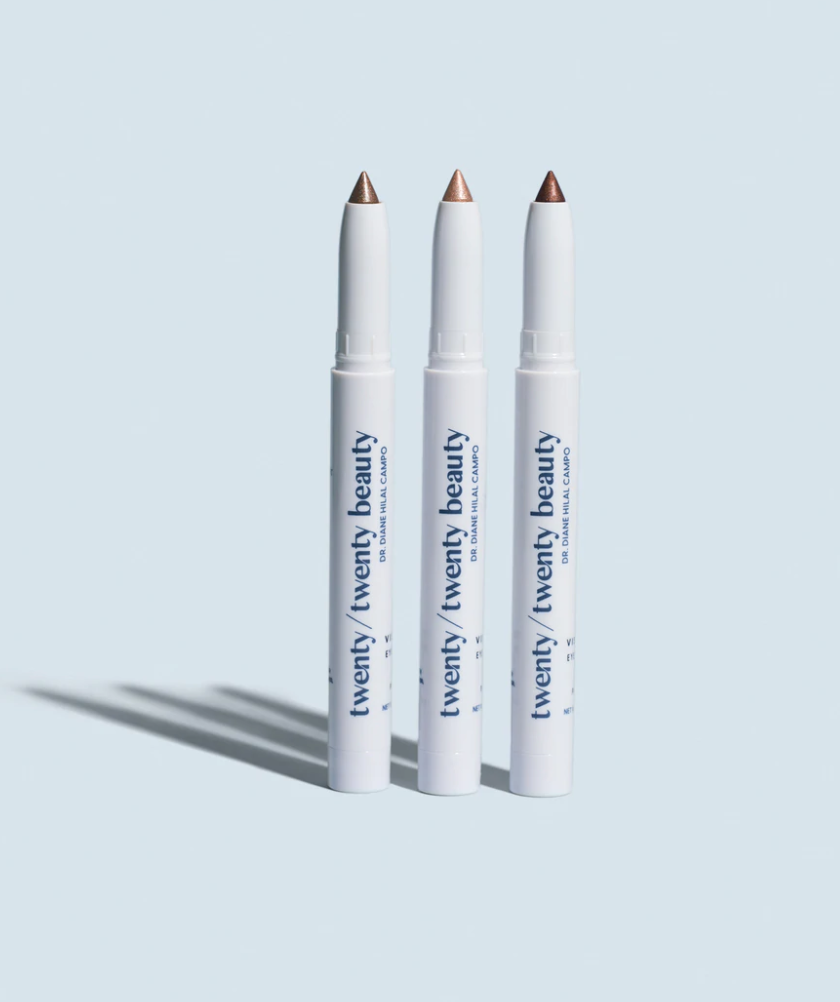
“Powdered shadows, with every blink, there’s fall out from the powders,” says Dr. Hilal-Campo. “The fall out from the powders leeches into the tear film of the eye. The chemicals have toxins in them that can damage the ocular structures and contribute to a dry, irritated, red eye, plus the pigments scar the conjunctiva. If you pull down the lower lid, often you’ll see black or dark pigment colors because of fallout from shadows and mascara, scarring the conjunctiva, inferiority and superiorly. We see this on exams all the time. My shadows are cream shadows. They don’t have any fallout. They’re safer.”
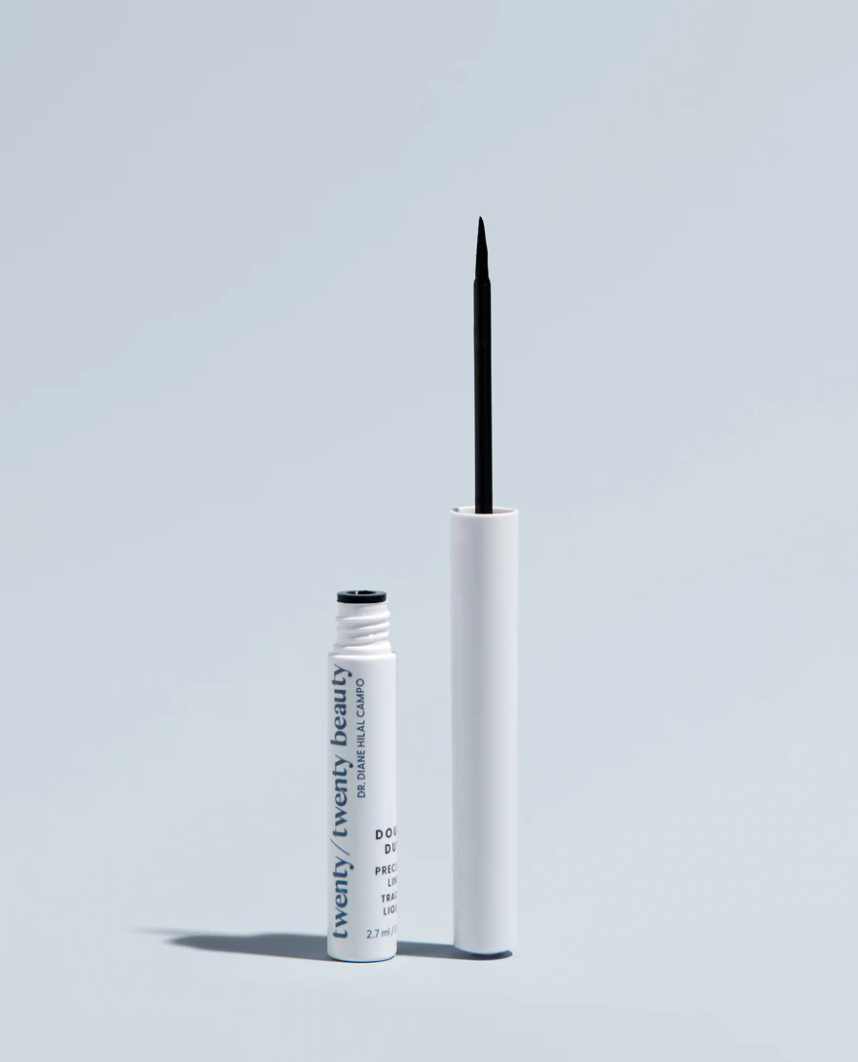
Dr. Hilal-Campo designed this liner to be eye-safe, but you still shouldn’t use it on the wetline. “It’s to be used on the skin, not to be tightlined on the wet line, so that the meibomian glands are not blocked,” she says. It also includes castor oil to promote lash growth.
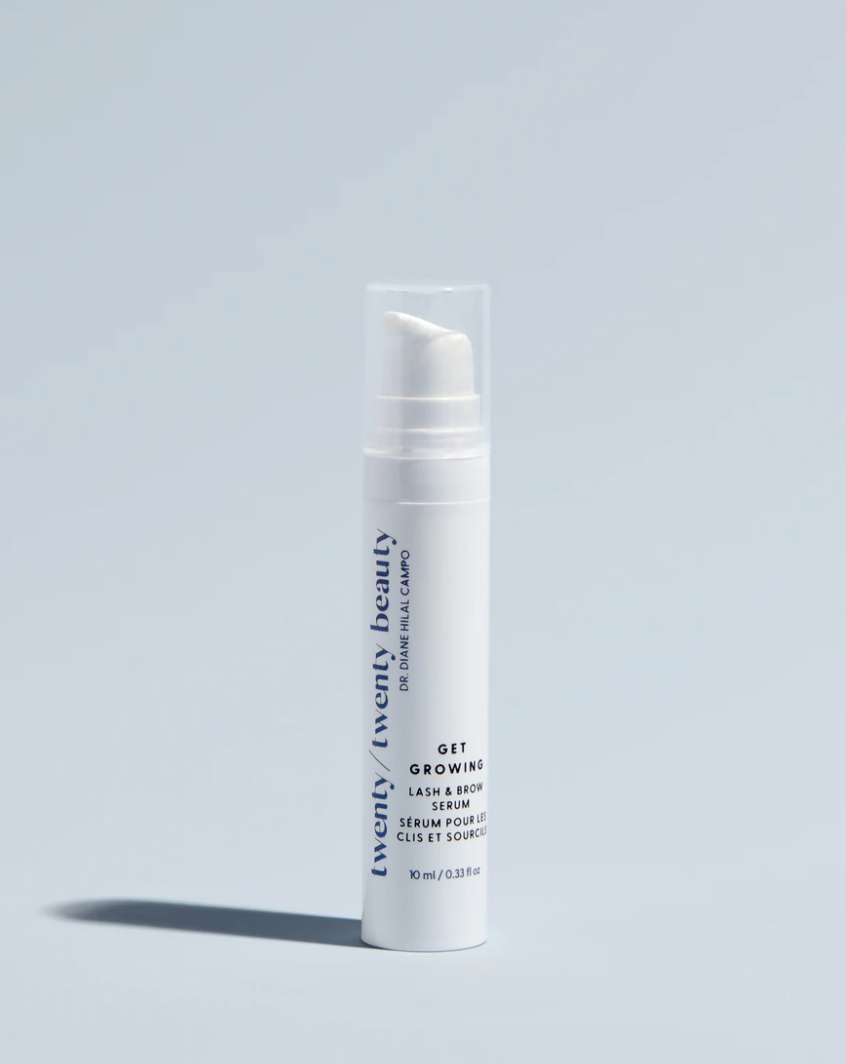
“Almost all of the eyelash serums out there, at least two thirds, contain an undisclosed prostaglandin analog,” says Dr. Hilal-Campo. It’s an ingredient that’s not regulated by the FDA and is often not mentioned on ingredient lists. It has been linked to watery, red, itchy eyes, changes in skin/iris pigmentation, and lash loss.
Dr. Hilal-Campo’s lash and brow serum uses a combination of oils that she began using to treat dry-eye patients. “They would rub it into their lids and lashes at night before bed, and they would wake up, and their eyes would feel great, and it would grow lashes,” she says. “It hydrates brows and lashes, prevents them from breaking, and it promotes lash and brow growth by causing increased vascular supply to the roots of the lashes and causing them to go from the resting to the growth phase.”
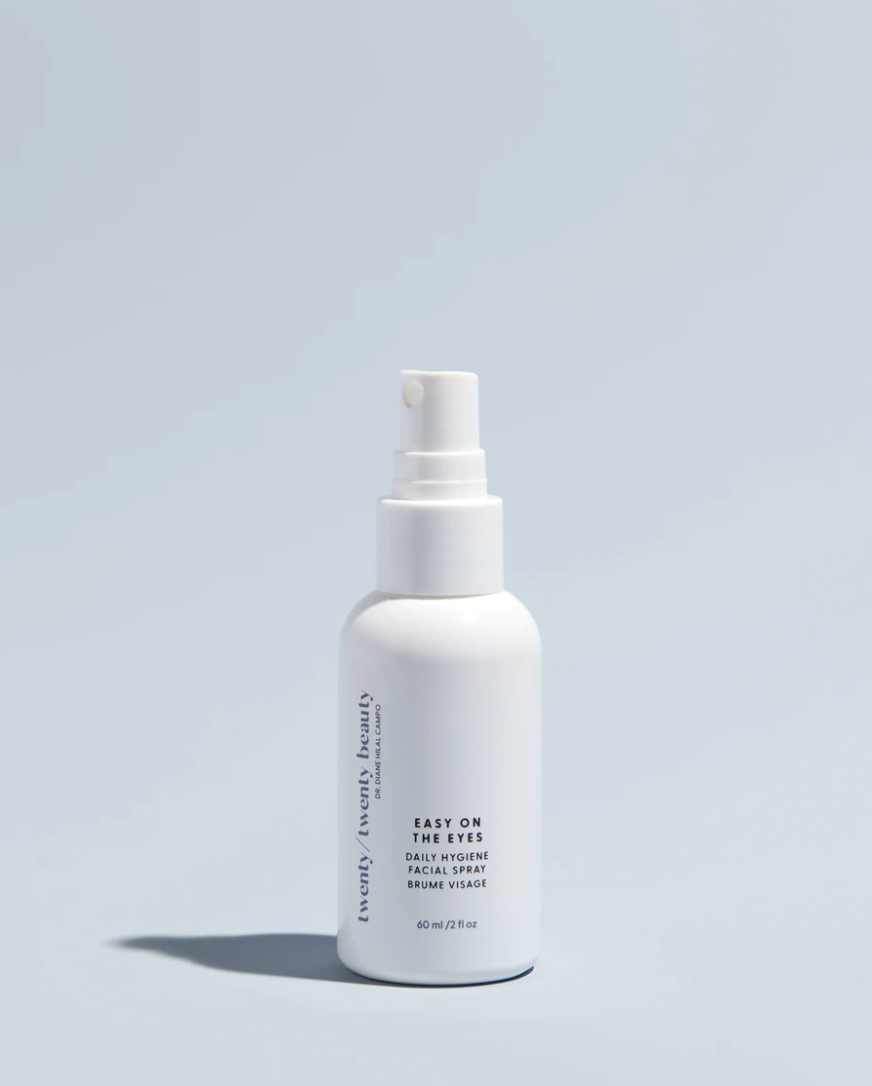
Though it’s not a makeup product, this hypochlorous acid spray was Twenty/Twenty’s first launch. It acts as an antiseptic, and is great for anyone who wants to safely remove their eye makeup without irritation.
According to Dr. Hilal Campo, a buildup of bacteria on your lashes—something that’s common for makeup wearers who don’t wash their brushes or replace their mascaras as frequently as they should—can lead to an eyelash infection called blepharitis. “If you’re using this twice a day, it’s preventative for blepharitis,” she says. “You can put some on a cotton round and scrub your eyelashes. It kills 99.9 percent of bacteria within a minute.” And after you clean your makeup brushes with soapy water, you can use this spray to sanitize them.
Up next from Dr. Hilal-Campo: an eye makeup remover, tinted brow gels, more shades of the shadow sticks, and an eye serum. Her goal is to make irritation from eye makeup a thing of the past. Eye doctors know the potential these ingredients have to cause discomfort and even harm. The next step is getting consumers to understand that they don't have to put up with eye irritation from makeup. And for their long-term eye health, they shouldn't.
Want to be the first to hear about the latest (and greatest) SHOP product drops, custom collections, discounts, and more? Sign up to have the intel delivered straight to your inbox.
Loading More Posts...